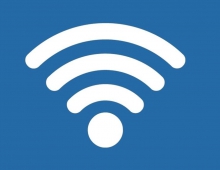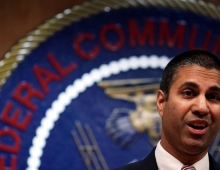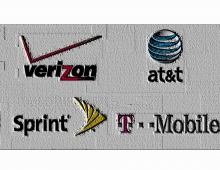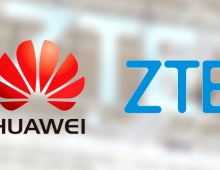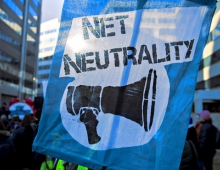
FCC Approves Unlicenced Use of TV White Spaces
The Federal Communications Commission voted Tuesday to open up unused, unlicensed portions of the television airwaves known as "white spaces" to deliver wireless broadband service.
The plan sought by tech companies like Google and Microsoft to open television airwaves to new wireless devices.
The five-member FCC voted to open unlicensed pockets of the spectrum known as white space that will become available when U.S. broadcasters are required to move to digital television next year.
"The rules represent a careful first step to permit the operation of unlicensed devices in the TV white spaces and include numerous safeguards to protect incumbent services against harmful interference," the FCC siad in a press release.
The rules will allow for both fixed and personal/portable unlicensed devices. Such devices must include a geolocation capability and provisions to access over the Internet a data base of the incumbent services, such as full power and low power TV stations and cable system headends, in addition to spectrum-sensing technology. The data base will tell the white space device what spectrum may be used at that location.
Wireless microphones will be protected in a variety of ways. The locations where wireless microphones are used, such as sporting venues and event and production facilities, can be registered in the data base and will be protected in the same way as other services.
The Commission also has required that devices include the ability to listen to the airwaves to sense wireless microphones as an additional measure of protection for these devices.
All white space devices are subject to equipment certification by the FCC Laboratory.
The Commission also will permit certification of devices that do not include the geolocation and data base access capabilities, and instead rely solely on spectrum sensing to avoid causing harmful interference, subject to a much more rigorous approval process.
Companies like Google and Microsoft, as well as consumer groups, said access to the white space airwaves would encourage innovation in cellular telephones and wireless devices, much as WiFi did.
"The FCC has been looking at this issue carefully for the last six years. Google has worked hard on this matter with other tech companies and public interest groups because we think that this spectrum will help put better and faster Internet connections in the hands of the public," wrote on the Google's blog Larry Page, Co-Founder of Google.
"We will soon have "Wi-Fi on steroids," since these spectrum signals have much longer range than today's Wi-Fi technology and broadband access can be spread using fewer base stations resulting in better coverage at lower cost. And it is wonderful that the FCC has adopted the same successful unlicensed model used for Wi-Fi, which has resulted in a projected 1 billion Wi-Fi chips being produced this year. Now that the FCC has set the rules, I'm sure that we'll see similar growth in products to take advantage of this spectrum," Page added.
Inverstigation on pricing polcies of cable, Verizon
In related news, the FCC also opened an inquiry into cable TV pricing Monday. Specifically, the agency is investigating how much cable TV operators plan to charge consumers once the U.S. moves from analog to all-digital broadcast TV. The move, which will impact millions of TV viewers across the USA, takes place next February.
Consumers have lately been flooding the FCC with complaints about the post-transition plans of cable TV operators. FCC' concern is that cable TV operators would try to use the transition to force customers to "spend the same amount of money to get less" programming once the transition takes place, "or more money to get the same" amount of programming.
As part of the inquiry, the FCC sent a letter yesterday to a number of cable companies, including Time Warner, Comcast and Verizon, seeking information about their post-transition pricing plans.
The five-member FCC voted to open unlicensed pockets of the spectrum known as white space that will become available when U.S. broadcasters are required to move to digital television next year.
"The rules represent a careful first step to permit the operation of unlicensed devices in the TV white spaces and include numerous safeguards to protect incumbent services against harmful interference," the FCC siad in a press release.
The rules will allow for both fixed and personal/portable unlicensed devices. Such devices must include a geolocation capability and provisions to access over the Internet a data base of the incumbent services, such as full power and low power TV stations and cable system headends, in addition to spectrum-sensing technology. The data base will tell the white space device what spectrum may be used at that location.
Wireless microphones will be protected in a variety of ways. The locations where wireless microphones are used, such as sporting venues and event and production facilities, can be registered in the data base and will be protected in the same way as other services.
The Commission also has required that devices include the ability to listen to the airwaves to sense wireless microphones as an additional measure of protection for these devices.
All white space devices are subject to equipment certification by the FCC Laboratory.
The Commission also will permit certification of devices that do not include the geolocation and data base access capabilities, and instead rely solely on spectrum sensing to avoid causing harmful interference, subject to a much more rigorous approval process.
Companies like Google and Microsoft, as well as consumer groups, said access to the white space airwaves would encourage innovation in cellular telephones and wireless devices, much as WiFi did.
"The FCC has been looking at this issue carefully for the last six years. Google has worked hard on this matter with other tech companies and public interest groups because we think that this spectrum will help put better and faster Internet connections in the hands of the public," wrote on the Google's blog Larry Page, Co-Founder of Google.
"We will soon have "Wi-Fi on steroids," since these spectrum signals have much longer range than today's Wi-Fi technology and broadband access can be spread using fewer base stations resulting in better coverage at lower cost. And it is wonderful that the FCC has adopted the same successful unlicensed model used for Wi-Fi, which has resulted in a projected 1 billion Wi-Fi chips being produced this year. Now that the FCC has set the rules, I'm sure that we'll see similar growth in products to take advantage of this spectrum," Page added.
Inverstigation on pricing polcies of cable, Verizon
In related news, the FCC also opened an inquiry into cable TV pricing Monday. Specifically, the agency is investigating how much cable TV operators plan to charge consumers once the U.S. moves from analog to all-digital broadcast TV. The move, which will impact millions of TV viewers across the USA, takes place next February.
Consumers have lately been flooding the FCC with complaints about the post-transition plans of cable TV operators. FCC' concern is that cable TV operators would try to use the transition to force customers to "spend the same amount of money to get less" programming once the transition takes place, "or more money to get the same" amount of programming.
As part of the inquiry, the FCC sent a letter yesterday to a number of cable companies, including Time Warner, Comcast and Verizon, seeking information about their post-transition pricing plans.



